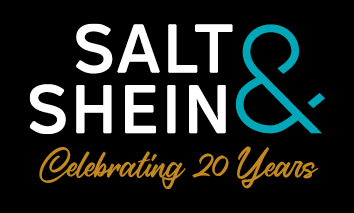Is Reputational Risk Factored into Your Executive Search and Selection Process
Keeping reputational risk in mind is important for any business going through a hiring process. With the ubiquity of online reviewing platforms, word travels fast in our current digital culture. And the corporate affairs industry is no exception. Sites such as Glassdoor and Seek have emerged as popular review marketplaces, and new social media trends contribute…
Keeping reputational risk in mind is important for any business going through a hiring process. With the ubiquity of online reviewing platforms, word travels fast in our current digital culture. And the corporate affairs industry is no exception. Sites such as Glassdoor and Seek have emerged as popular review marketplaces, and new social media trends contribute to more online discussion about company experiences.
A recent Norton Rose Fulbright survey revealed that 51.3 per cent of Australian organisations are extremely sensitive to reputational risk. It only takes one bad interview experience to damage, even if slightly, the positive reputation a company has built up over many years.
51.3 per cent of Australian organisations are extremely sensitive to reputational risk.
When going through the already complicated executive search and selection process, make sure that reputational risk is factored into overall strategy. Consider the following ways to implement a tactic that will work for your company:
Be prepared to address questions, good or bad
It’s now common practice for candidates to look at online reviews before an interview. This means that strong candidates will likely ask you to address any weak points they have read about from former or even current employees.
Do your own research on these sites beforehand, and create strategies for the best ways to handle difficult questions. Whatever response you do give, the important thing is that you are not taken by surprise when these hard topics are brought up.
Having a well-thought-out response will show candidates that you and the executive team care about employee issues and are taking steps to address them.
Transparency and open dialogue are key
Whatever stage you’re in during the executive search and selection process, remember that transparency is becoming more important to candidates. In a Harvard Business Review survey, 70 per cent of respondents said that receiving regular updates and communication about strategy were important for company engagement.
Open dialogue within an organisation will help those online reviews as well. Be honest in employee meetings. Allow people to ask questions, whatever the topic. It’s important for executives to know what employees are struggling with or are frustrated by. Otherwise these concerns could end up on a more public forum.
An open dialogue is also important between executives and board members so that those making company decisions have similar goals in mind.
Engage and inform employees
There are four future trends that the Norton Rose Fulbright survey indicated would have the biggest and most long-term impact on reputational risk:
- Ethics and conduct in the workplace.
- Social media in the age of post-truth.
- Disruption of regulation.
- Disruption of technology.
Because many of these concepts may be new to employees within your company, focus training and presentation opportunities on these issues. Discuss the importance of reputation and how individuals can help the organisation’s overall image. Engaging company members will allow them to feel heard and will give the opportunity for greater internal dialogue, which in turn will help the executive search process.
Implementing newsletters is an effective way to inform and engage with employees, and there may even be staff members who can contribute their expertise on different topics.
Another way to get information out to both employees and potential executive candidates is to create an Insights or News section on your company’s website where you can share press releases, news articles or blog posts within the community.
Take a stance
As PR Week reported recently, the ability for a company to properly manage their reputation is the future of corporate affairs and communication. But it’s not just about crisis management – it’s about defining what a business’s mission is and aligning its message around that goal.
Taking a firm stance on related issues to a company’s mission allows for audiences to better connect with that entity.
Taking a firm stance on issues that are related to a company’s mission allows for audiences to better connect with that entity, and thus reputation can be built on values.
Remaining open and avoiding timidity are strategies recommended by Tony Langham, CEO of Lansons.
Embrace new technologies
It will be evident to executive candidates if a company is behind on new technologies. Are data analytics tools being utilised? Is the website slow to load and difficult to navigate? Think about even something as simple as the ability to offer a video interview if a candidate isn’t located in your city.
Failing to have some of these basic technologies in place can make your company’s overall strategy seem outdated and unappealing.
Addressing these issues during the executive search and selection process will ensure that you’ve done everything you possibly can to handle reputational risk. Management plans need to be revisited often with new communication technologies constantly emerging.
Remember to:
- Always be prepared to answer the tough questions in an interview.
- Keep up transparency and an open dialogue.
- Engage and inform employees regularly.
- Speak up about industry issues.
- Don’t be afraid to embrace new technologies soon after they’re introduced.
Implementing these ideas into your reputation risk management strategy while going through the complicated search and selection process will create a positive, informed and strong image for your company.
Discover insights.
Creating messages that cut through social media, news cycles and even the humble inbox has never been easy, but, with more noise across more channels, it’s become more important than ever to create messages that stand out and land with impact. Visual communications tools are gaining traction as a way of shaping messages that hit…
Looking for greater choice in the contract options available to you? Having history and rapport with a specialist recruiter like Fraser Clapcott will open doors to opportunities you may have missed for yourself, that add value for both contractor and employer. In the current climate of uncertainty, a willingness and propensity for flexibility comes with…
If you’ve been ruminating on changing-up your comms career, now may be the ideal time to talk with your trusted recruiter about making a move. Salt & Shein Director, Lucy Newcomb, sees significant scope for motivated communicators to broaden their career horizons, and make the job of their dreams a reality, in 2023. “A rapidly…







